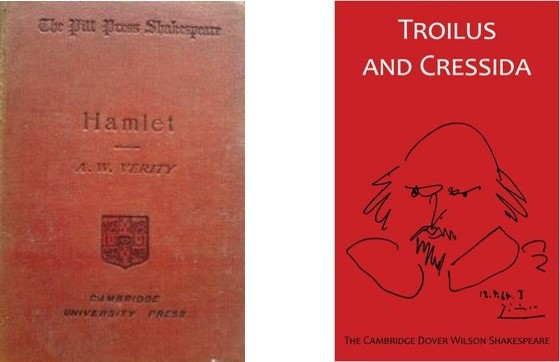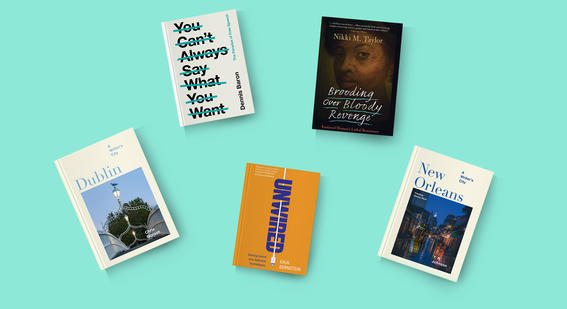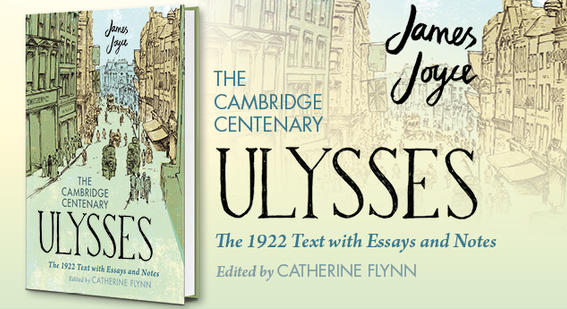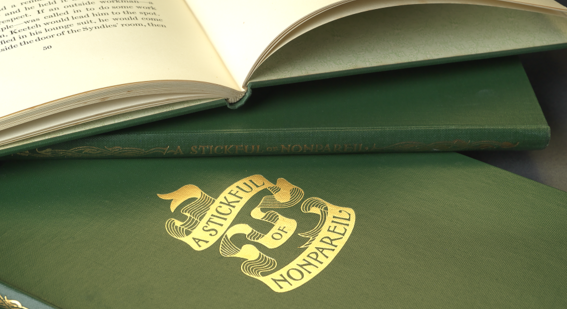"Such virtue hath my pen": Shakespeare and Cambridge
Shakespeare’s work forms a central plank of Cambridge University Press’s humanities publishing. For 'Twelfth Night' we take a look at the rich history of that publishing, our latest exciting titles and what’s coming next.

When the first volume of Shakespeare’s work rolled off the Cambridge presses in 1863, it was the start of a tradition of publishing that is now firmly at the heart of our humanities programme.
For Alex Wright, senior executive publisher, “The humanities are about the study of ourselves; of human society and culture and of how we connect with each other and experience the world around us. All that is writ large in Shakespeare. His work is the acme of English heritage, culture and language.
“So I would say that Shakespeare is fundamental to our identity and legacy as a publisher and also, by virtue of our long history, as curators of this country’s intellectual and cultural heritage.”
Act 1, Scene 1
In fact, that first ‘Cambridge’ Shakespeare was printed on behalf of another publisher – a nine volume edition produced for Macmillan between 1863 and 1866.
It gained the name Cambridge Shakespeare as the texts were edited by a team of academics from the University. Then, in the 1890s, the Press produced a series of single volume editions of Shakespeare’s plays for schools known as the Pitt Press Shakespeare series – named after the Press's purpose-built base in the centre of Cambridge.
The New Shakespeare was the first series of scholarly Shakespeare editions published both by and for the Press. Starting with The Tempest in 1921, the project took more than 40 years to complete. Arthur Quiller-Couch, one of the initial editors, soon dropped out of the mammoth undertaking and his co-editor, John Dover Wilson, eventually lost his eyesight.
Nevertheless, Dover Wilson’s editions stayed in use for many years and sold widely across the world, even being recorded onto vinyl LPs as audio versions in the 1950s. Paperback versions produced in 1968 featured Picasso’s iconic portrait of Shakespeare on the covers, earning these the name the 'Picasso Shakespeare’.
By the 1970s, Dover Wilson’s editions were showing their age, so starting in 1984, newly edited versions with supporting notes were published, and the New Cambridge Shakespeare launched under the general editorship of Philip Brockbank. In the 1990s the editorship passed to Brian Gibbons, later joined by A.R. Braunmuller, and the series was relaunched with a new design by the artist David Hockney that referenced Picasso’s Shakespeare.
The 1990s also saw the launch of the Cambridge School Shakespeare, under Rex Gibson, which used the established texts but with completely new notes and activities aimed at younger readers.

“Words without thoughts never to heaven go”
Alongside Shakespeare’s plays and poems, we have also published a huge store of related writing and scholarship. The list encompasses titles sold in bookshops for a wide audience as well as textbooks, a journal, monographs and its own digital products.
Some of the stars of the backlist include:
- Shakespeare in Production, which includes Twelfth Night, offers students and researchers stage histories of each Shakespearean text, looking at major productions, adaptations and film versions
- Players of Shakespeare are collections of essays by well-known actors with the UK-based Royal Shakespeare Company and the National Theatre, London on their interpretations of major Shakespearian roles
- The Cambridge Companion to Shakespeare is one of the very first Companions to Literature the Press published, and is now in its third iteration, accompanied by a sequence of other Shakespeare-orientated Companions which distil original, lively scholarship into pithy, student-friendly guides – encompassing topics such as language, staging, film, race, popular culture and war
- Monumental reference works such as The Cambridge Guide to the Worlds of Shakespeare provide a treasure-trove of award-winning essays – this work alone contains more than 300 contributions, covering both the world in which Shakespeare and his contemporaries lived and what the world has made of Shakespeare as a cultural icon during the past four centuries.
We continue to publish a steady stream of cutting-edge monographs, and our authors have frequently won the prestigious Shakespeare’s Globe Book Award, including joint winner in 2020 for Shakespeare's Domestic Tragedies by Emma Whipday and Musical Response in the Early Modern Playhouse, 1603-1625 by Simon Smith in 2018 (the awards are biennial).
In addition, we also publish a number of books on Shakespeare and his work as part of our popular Academic trade programme, which makes exciting scholarly ideas and arguments accessible to the general reader, as well as our Academic impact programme, which (the clue’s in the name!) have a powerful interdisciplinary impact. A sparkling new book by one of the world’s foremost authorities on Shakespeare, Professor Sir Stanley Wells, called What Was Shakespeare Really Like? will join that roster in 2023.
Shakespeare titles in our range for general readers, available to buy online or via bookshops, and our Academic impact programme include:
This far-reaching study shows significant parts of Shakespeare's texts have been elided, misconstrued or rendered invisible by readers who have ignored the presence of race in early modern England. Bringing the Black American intellectual tradition into fruitful dialogue with European thought, this urgent interdisciplinary work offers a deep, revealing and incisive analysis of individual plays, including Othello, The Merchant of Venice and Hamlet. Demonstrating how racial illiteracy inhibits critical practice, Ian Smith provides a necessary anti-racist alternative that will transform the way you read Shakespeare.
For nearly three centuries, men – most of them white and financially privileged – ensconced themselves in private and hard-to-access libraries, hammering out 'their' versions of Shakespeare's text. What if this is not the whole story? A bold, revisionist and alternative version of Shakespearean editorial history, this book recovers the lives and labours of almost seventy women editors.
How can we look afresh at Shakespeare as a writer of sonnets? What new light might they shed on his career, personality, and sexuality? This ground-breaking book assembles all of Shakespeare's sonnets in their probable order of composition. An inspiring introduction debunks long-established biographical myths about Shakespeare's sonnets and proposes new insights about how and why he wrote them. As well as a beautifully presented hardback, this title is also available as an audiobook, voiced by Kenneth Branagh and Lolita Chakrabarti.
“What’s past is prologue”
In 2020, we brought much of this unrivalled collection of Shakespeare publishing together online for the first time with a new, fully integrated digital platform.
Cambridge Shakespeare: The Works and Worlds of Shakespeare Online gives subscribers access to the Cambridge editions where they can flick seamlessly between the plays and poems alongside a wealth of integrated notes, prize-winning reference material and a collection of multimedia resources specially curated by the Folger Shakespeare Library. The aim is to provide the ultimate online Shakespeare resource for students and scholars across the fields of literature, drama and theatre. (A free preview of the platform is available and free trials are available on request.)
Taking a body of work that’s been our lifeblood for many generations and moving it into the future was an incredibly important moment for us – Alex Wright, senior executive publisher
Fresh for 2022, users also have digital access to the complete collection of Shakespeare Survey, a yearbook of Shakespeare studies and production. Running since 1948 many of its essays have become classics of Shakespeare criticism. Each volume is devoted to a theme, play, or group of plays, with contributors ranging from internationally-known scholars to graduate students, and early-career academics.

The full archive has been online for some time and was incorporated into our main Shakespeare platform this year, giving universities access to even more world-class scholarship, all in one place.
Forthcoming updates for next year include a new edition of Romeo and Juliet, as well as audiobooks of the plays with stellar casts of actors such as Ian McKellen, Harriet Walter and Benedict Cumberbatch. Extensive plans for future enhancements of the platform are underway, with a rigorous level of market testing to meet researchers’ and students’ needs.
The list is also home to three digital-first series from our Cambridge Elements programme: Elements in Shakespeare Performance; Elements in Shakespeare and Pedagogy and Elements in Shakespeare and Text offer concise cutting-edge contributions on topics such as Shakespeare and blackface, Shakespeare and virtual reality and Shakespeare and neurodiversity.
Emily Hockley, senior commissioning editor of our Academic theatre and literature list, said: "Elements presents us with a way of getting world-class scholarship out to readers incredibly swiftly, as well as allowing for multimedia enhancements of written content.
"Watch out in particular for Anti-Racist Shakespeare, by Ambereen Dadabhoy and Nedda Mehdizadeh, due to publish early in 2023. Cambridge has funded this so that it’s freely available in its digital form, meaning everyone will soon be able to read this fantastic contribution to teaching and learning Shakespeare today."
“All things are ready, if our mind be so”
The next step in the history of Shakespeare publishing at Cambridge is perhaps the biggest: a whole new edition of Shakespeare’s works to replace the New Cambridge Shakespeare.
Called simply Cambridge Shakespeare Editions, the series will be under the general editorship of Margaret Jane Kidnie, Sonia Massai and Gillian Woods and is a scholarly task of epic proportions, with the editions due to publish in print and online in the late 2020s, accompanied by all-new digital resources.
The need to produce new editions hints at a surprising truth: while Shakespeare’s works have had a huge and continuing influence on the English language, many of the texts exist in multiple versions.
Emily continues: “The records of Shakespeare’s handwriting that we have are confined to his signatures, rather than handwritten manuscripts. Many of the plays are also only available in the form of the First Folio, which was printed in 1623, seven years after his death. We don’t know whether Shakespeare ever revised any of his own plays, but for half the plays, we have more than one text. There are multiple versions from different sources. There are different words, lines attributed to different speakers and sometimes quite significant chunks of text that are axed or replaced.”
There isn’t one definitive Shakespeare, he has always been in flux with printers, actors, scholars, and students
– Emily Hockley, senior commissioning editor
Faced with producing a new edition of these works, how does anyone go about choosing what to include? Emily explained: “When an editor sits down with a play for which there are many different textual choices, they have to make informed decisions on their base-text and its provenance. Textual decisions can affect the whole shape of the play, and the number of interpretations it offers. Editors need to ‘show their working’ for the textual decisions they make, representing to the readers the choices they have made between different available variants.”
She added: “There isn’t one definitive Shakespeare, he has always been in flux with printers, actors, scholars, and students. There are facts and contexts to be learned, yes, but there has always been a lot of interpretation too. We are equipping students with the confidence that they have the knowledge – and the right – to enter into that scholarly discussion.”
Senior executive publisher, Alex Wright, continues: “The very fact that Shakespeare’s words are still pored over, argued about and reinterpreted by every successive generation speaks to their lasting relevance and power. Beyond the quotes and turns of phrase that have embedded themselves in the language, his plays and sonnets clearly say something fundamental about human experience, and the way that he portrayed people, the world and its workings still strike a chord with us, more than 400 years later.”




